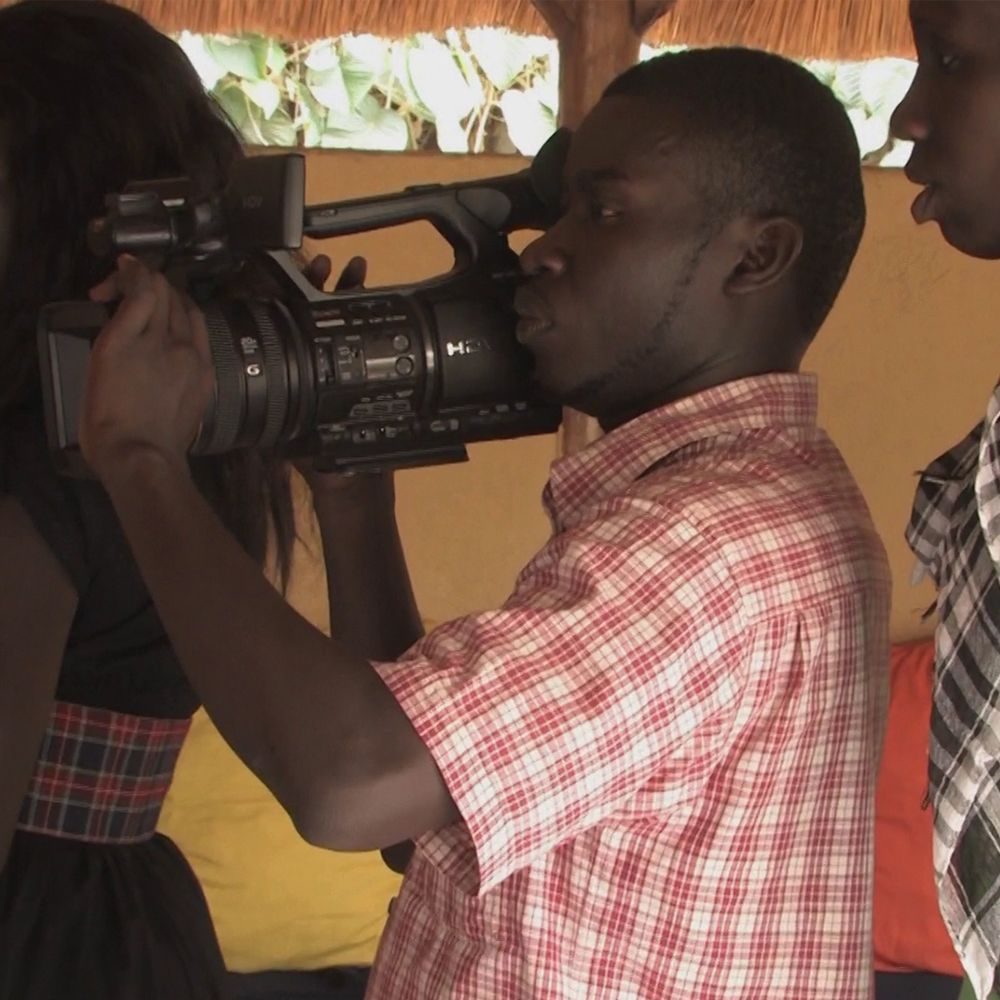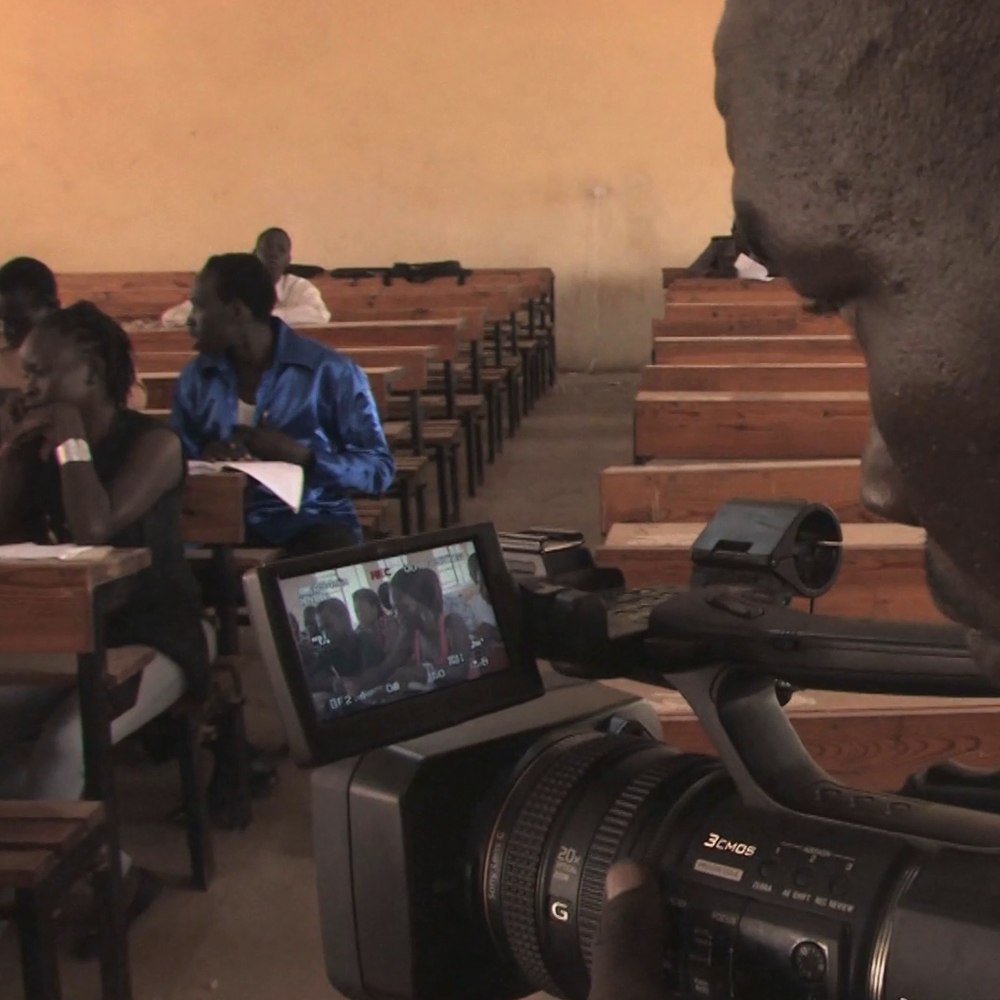COME, I’LL SHOW YOU
TENSIONS AMONG THE YOUNG
When the Republic of South Sudan gained independence, South Sudanese families returned from their exile in other African countries and around the globe. Children and young people who grew up in the most different cultures — some liberal, some conservative — are now confronted with the traditions in their country of origin. Which rules should be followed, and which changed? Conflicts between different ways of life and moral values are inevitable. How are young people managing to foster tolerance amidst such divisions?
 
In case your browser doesn’t allow the video to be automatically available, please click here to be re-directed to YouTube: CLASH OF CULTURES
COME, I’LL SHOW YOU
TENSIONS AMONG THE YOUNG
When the Republic of South Sudan gained independence, South Sudanese families returned from their exile in other African countries and around the globe. Children and young people who grew up in the most different cultures — some liberal, some conservative — are now confronted with the traditions in their country of origin. Which rules should be followed, and which changed? Conflicts between different ways of life and moral values are inevitable. How are young people managing to foster tolerance amidst such divisions?

COME, I’LL SHOW YOU THE
FILMMAKERS
| Director | Mary Kadi Manoah |
| Director of Photography | Hakim George |
| Editor | York Ezra, Christian R. Timmann |
| Sound | Jana König |
| Assistant Production Manager | Isaac Ngobi |
COME, I’LL SHOW YOU THE
FILMMAKERS
Director
Mary Kadi Manoah
Director of Photography
Hakim George
Editor
York Ezra, Christian R. Timmann
Sound
Jana König
Assistant Production Manager
Isaac Ngobi

COME, I’LL SHOW YOU THE
FILM INFORMATION
| Type | Fiction |
| Length | 7:14 min. |
| Language | Arabic / English with English or German subtitles |
| Country of origin | South Sudan |
| Year | 2013 |

COME, I’LL SHOW YOU THE
FILM INFORMATION
Filmart
Spielfilm
Filmlänge
7:14 Min.
Sprache
Arabisch / Englisch mit englischen oder deutschen Untertiteln
Entstehungsland
Südsudan
Entstehungsjahr
2013
COME, I’LL SHOW YOU THE COUNTRY OF ORIGIN
SOUTH SUDAN
South Sudan (officially the Republic of South Sudan) gained its independence from the Republic of Sudan in the north in 2011 and is the most recently recognised sovereign state in Africa. The country borders Ethiopia, Kenya, Uganda, Democratic Republic of the Congo, and the Central African Republic. The capital city is Juba. English is the official language, but Arabic and many other languages are also spoken.
>/br>
A struggle for governmental power led to a civil war between 2013 and 2018, the effects of which can still be felt. About two thirds of the approximately 13 million inhabitants cannot read or write, and more than half of the population lives below the poverty line.
>/br>
Journalists in South Sudan regularly face threats, assault and intimidation efforts. Criticism of the government and its agencies is poorly tolerated. Since fighting began in 2013, the situation has worsened: many journalists were forced to flee from the violence, and many news outlets had to cease operations. On the 2020 World Press Freedom Index published by Reporters without Borders, South Sudan ranked 138th out of 180 countries.
COME, I’LL SHOW YOU THE COUNTRY OF ORIGIN
SOUTH SUDAN
South Sudan (officially the Republic of South Sudan) gained its independence from the Republic of Sudan in the north in 2011 and is the most recently recognised sovereign state in Africa. The country borders Ethiopia, Kenya, Uganda, Democratic Republic of the Congo, and the Central African Republic. The capital city is Juba. English is the official language, but Arabic and many other languages are also spoken.
>/br>
A struggle for governmental power led to a civil war between 2013 and 2018, the effects of which can still be felt. About two thirds of the approximately 13 million inhabitants cannot read or write, and more than half of the population lives below the poverty line.
>/br>
Journalists in South Sudan regularly face threats, assault and intimidation efforts. Criticism of the government and its agencies is poorly tolerated. Since fighting began in 2013, the situation has worsened: many journalists were forced to flee from the violence, and many news outlets had to cease operations. On the 2020 World Press Freedom Index published by Reporters without Borders, South Sudan ranked 138th out of 180 countries.

